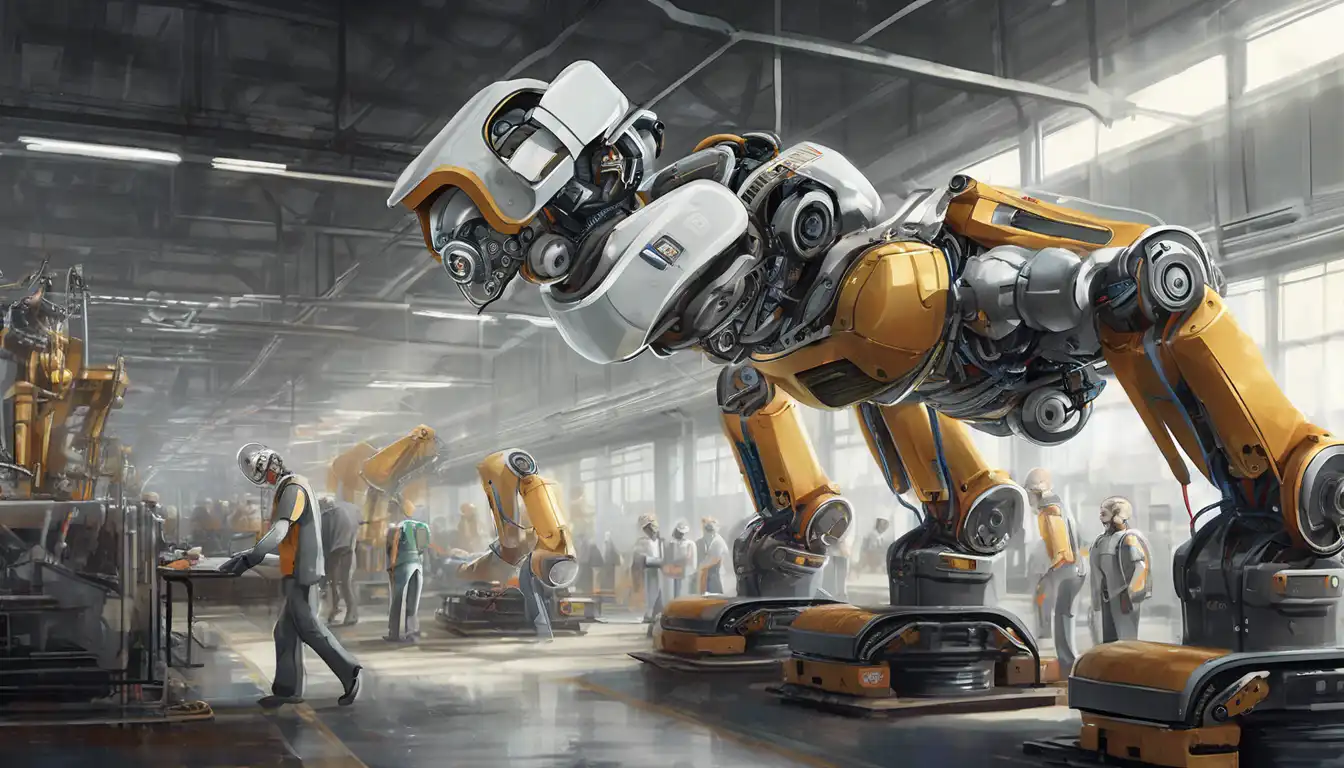The Revolutionary Impact of Robotics on Modern Manufacturing
In the ever-evolving landscape of industrial production, robotics has emerged as a cornerstone of innovation, driving efficiency, precision, and scalability to unprecedented levels. This transformative technology is not just reshaping manufacturing processes but is also redefining the competitive dynamics of industries worldwide.
Enhancing Efficiency and Productivity
Robotic systems, with their ability to operate 24/7 without fatigue, have significantly boosted production rates while minimizing errors. Automated assembly lines, powered by sophisticated robotics, can produce goods at a pace and consistency unattainable by human labor alone. This leap in productivity is a game-changer for manufacturers aiming to meet the growing demands of global markets.
Improving Quality and Precision
The precision of robotics in manufacturing ensures that every product meets stringent quality standards. Robots equipped with advanced sensors and vision systems can detect and correct minute discrepancies in real-time, ensuring flawless output. This level of precision is particularly crucial in industries like aerospace and electronics, where even the smallest error can have significant repercussions.
Reducing Costs and Waste
By automating repetitive and hazardous tasks, robotics not only reduces labor costs but also minimizes waste through precise material handling and processing. This efficiency contributes to more sustainable manufacturing practices, aligning with the global push towards environmental responsibility.
Facilitating Customization and Flexibility
Modern robotic systems are incredibly versatile, capable of being reprogrammed to accommodate new products or changes in design. This flexibility allows manufacturers to offer customized solutions without the need for extensive downtime or retooling, providing a competitive edge in today's market.
Challenges and Future Prospects
Despite the clear benefits, the integration of robotics into manufacturing is not without its challenges. High initial investment costs and the need for skilled personnel to operate and maintain robotic systems are significant barriers for small and medium-sized enterprises. However, as technology advances and becomes more accessible, these hurdles are expected to diminish, paving the way for wider adoption.
The future of manufacturing lies in the further integration of robotics with emerging technologies such as artificial intelligence (AI) and the Internet of Things (IoT). These synergies will unlock even greater efficiencies, enabling smart factories that are more adaptive, resilient, and efficient than ever before.
As we stand on the brink of this industrial revolution, it's clear that robotics will continue to play a pivotal role in shaping the future of manufacturing. By embracing this technology, manufacturers can not only enhance their operational capabilities but also contribute to a more sustainable and innovative industrial landscape.
For more insights into how technology is transforming industries, explore our articles on technology trends and the future of manufacturing.
